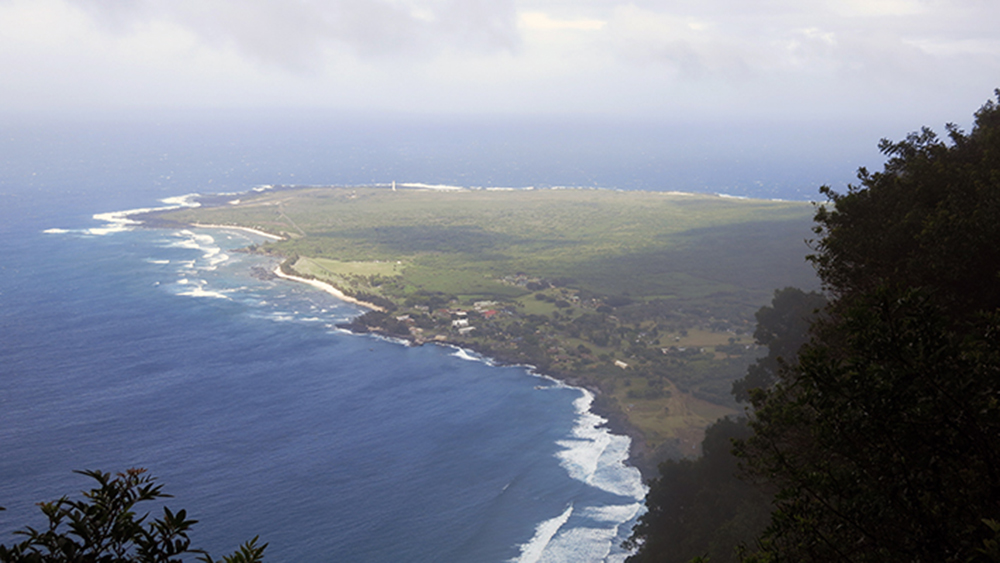
There’s something which draws me to Molokai, perhaps it’s the islands reputation of being the “real” Hawaii which appeals to me. It’s sparsely populated and lacks development; there are no chain stores or franchised restaurants and virtually no tourism. After two weeks here I still haven’t seen a beauty salon! Maybe it’s curiosity about the Kalaupapa leper colony which was located on the Makanalua Penninsula on the north side of the island, cut-off by 2000’ sea cliffs from the rest of the world . . . . probably both!
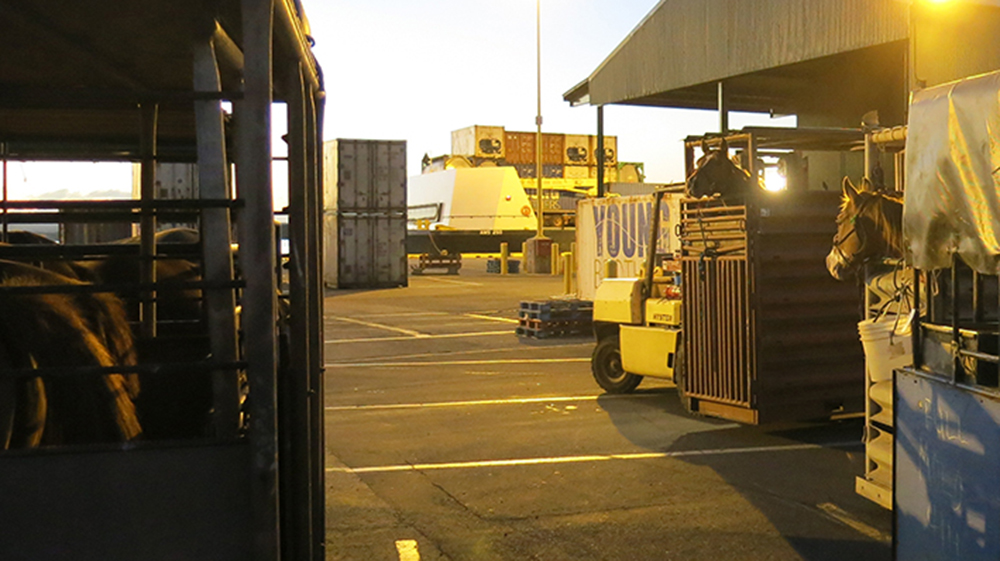
Anyway two weeks ago we finally departed Honolulu, had an overnight crossing of the Ka’iwi Channel and tied up the next morning at the wharf in Kaunakakai, the main town on the south side of Molokai. The town has a real frontier feel about it; dusty streets, wooden buildings, covered sidewalks, and shops with big square facades with Japanese names in 1930’s script. The grocery stores reminded me of the shops in the Marquesas, with the level of stock ebbing and flowing depending on the schedule of the barge from Oahu.
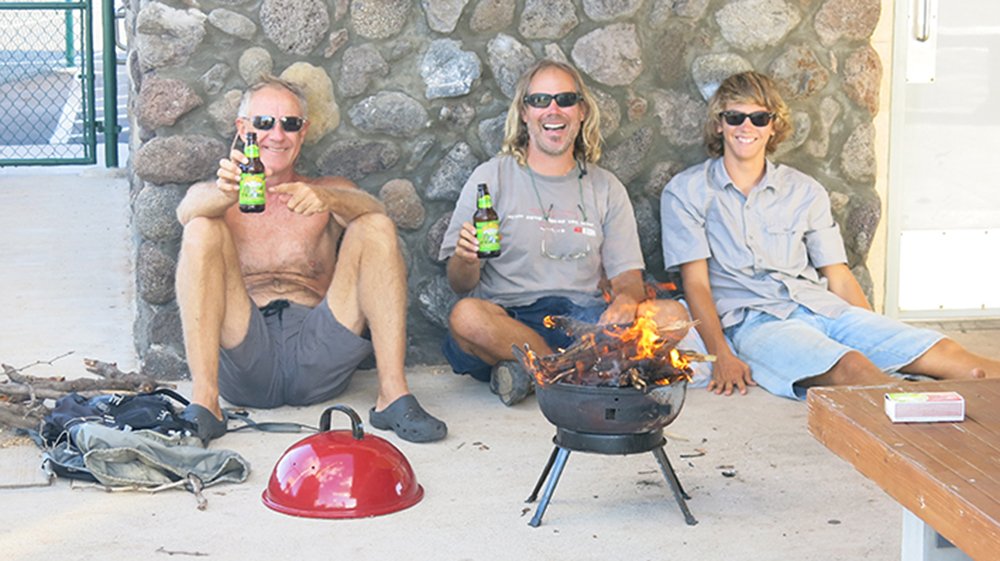
Molokai is tagged the Friendly Isle and it took us a day or two to figure out why. While not unfriendly, the people are not particularly welcoming. I guess they have struggled to maintain their seclusion, hand-painted signs reading “no cruise ships” or “save La’au Point [from development]” are common. However, I believe you get back what you put out, and a little extra word and a smile returned a warm and friendly response.
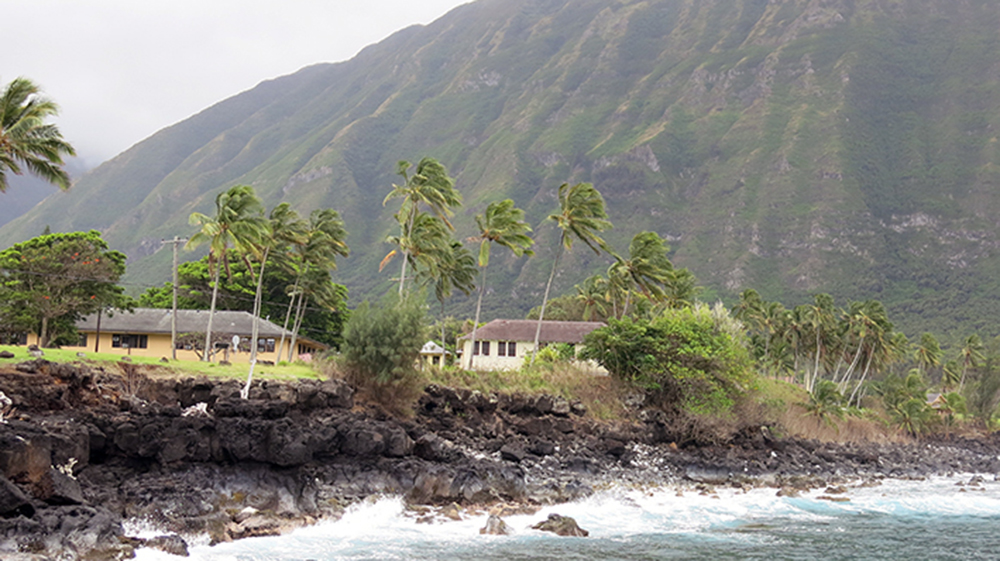
One of the first orders of business for me was to visit Kalaupapa. I had just read the poignant book “Molokai” which tells the story of a young girl who grew up in the leper colony at the Kalaupapa. Although the book is fictional, it is based on the accounts of people who were sent to live there and made it their home. There are no roads down the pali (cliff) which separates it from the rest of the island so you have to either hike take a mule down the three mile track, or fly in on the 9-seater plane. The hike was about an hour down and an hour up, not particularly gruelling but the path was very muddy and quite rough.
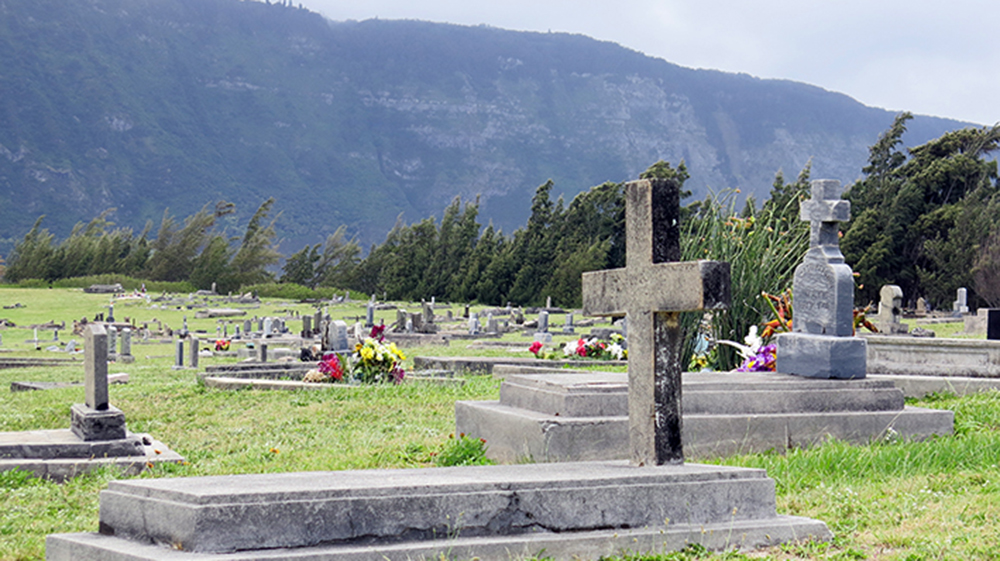
The peninsula was used as a place of confinement for people affected with Hansen’s disease (leprosy) until 1969, however many former patients chose to stay in the place that had become their home. Father Damien and Mother Marianne, two of the catholic missionaries who chose to live with and care for the people banished to Kalaupapa, have recently been sanctified. The tour, in an old school bus, visited most of the historic sites, including the graves of St. Damien and St. Marianne, but many of the buildings had fallen into disrepair and been demolished. Still, it didn’t take much imagination to get the feel of the despair and abandonment they must have felt on the remote windswept peninsula.
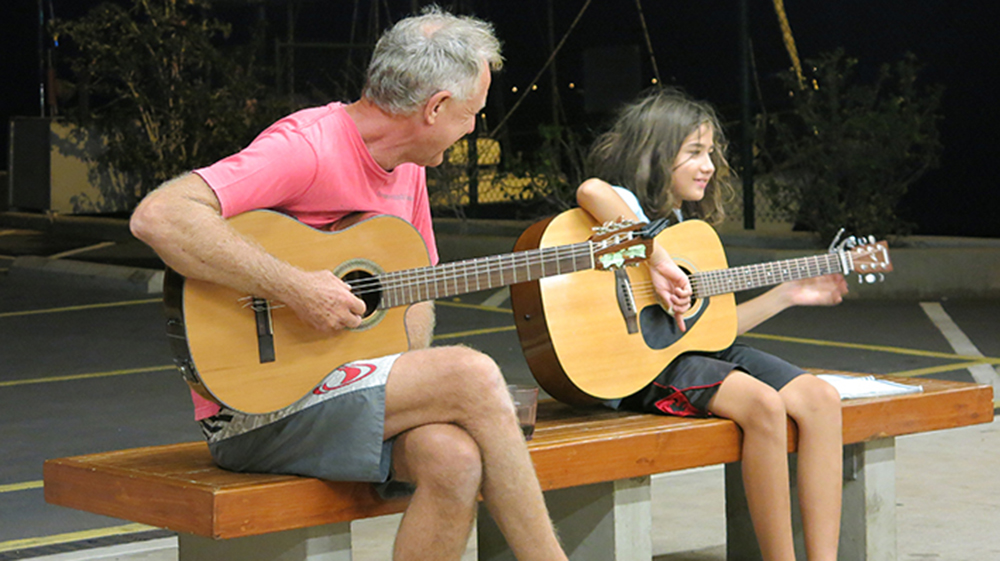
Once we were happily settled in Molokai, word got around and soon three or four of our other boat buddies from French Polynesia arrived in the harbour. We hadn’t seen some of them for a couple of months so it was great to catch up again. We also looked up Lorraine and Robby while we were here. They are friends of Laura, a distant relative, who settled here after cruising in the Pacific for nearly twenty years. We introduced them to our group of friends and, of course found we had a lot in common. They gave us an impromptu tour of the island and joined us for a couple of pot luck evenings in the ferry terminal on the wharf, great fun!
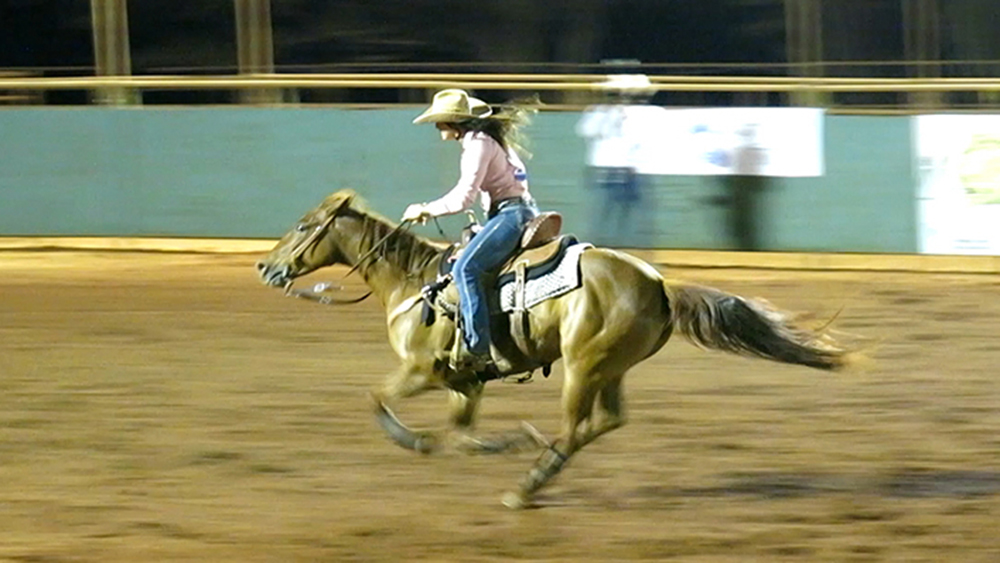
Ranching became part of Hawaiian life for 200 years and we really enjoyed the Molokai Ranch rodeo which was held last Saturday night at the west end of the island. We went with Lorraine and Robby, and Catherine and Paul from Kahia, one of the other yachts. We watched calf roping and bull riding and horse racing around barrels. I was really impressed with the horses which were in superb condition. I had seen them being off-loaded from the barge a couple of nights previously, and they were very patient and undisturbed by all the noise and activity on the wharf. The paniolo (Hawaiian cowboys) were skilful and even small children were competing in the barrel racing.
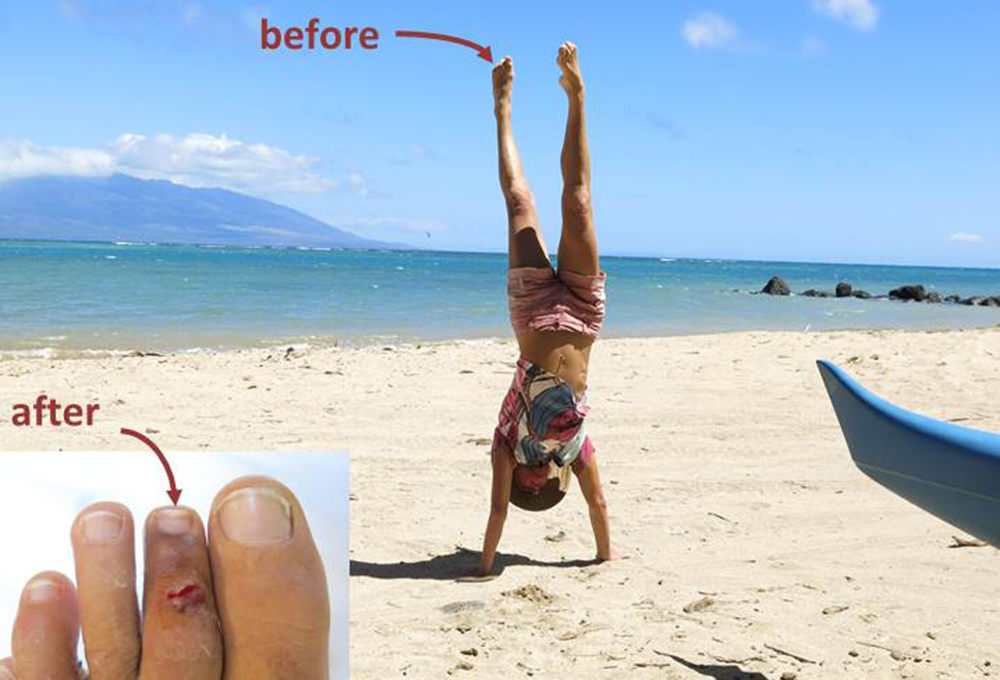
With strong easterly trades blowing most of the time, Molokai is a windy island. So the bus service is good fall back when cycling looks like too much hard work. One day Neil and I took the bus to explore Puko’o, a small clover-leaf shaped bay on the southeast coast. We found a lovely white sand beach with a view of Maui in the background, and watched the kite-surfers enjoying the stiff breeze. Unfortunately while I was messing around doing handstands on the beach, I hit my foot on the bow of an outrigger as I was coming down and broke my toe. So for the next six weeks I will be hobbling around, I hope it heals quickly as I don’t want it to delay our departure to British Columbia at the end of May.
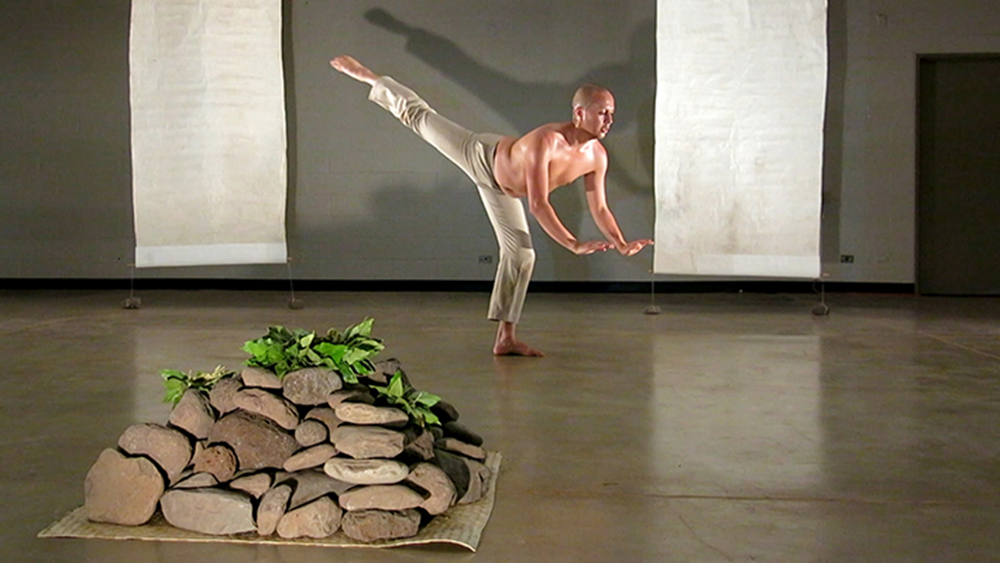
One evening I went to a dance performance called Pohaku, which I had seen advertised on a poster in town. It was modern dance and story-telling performed by a single actor whose parents had left Molokai during the war. He expressed his longing to return to the islands through narration and dance, it was unusual and imaginative and the sound of the electric cello added a certain melancholy to the performance.
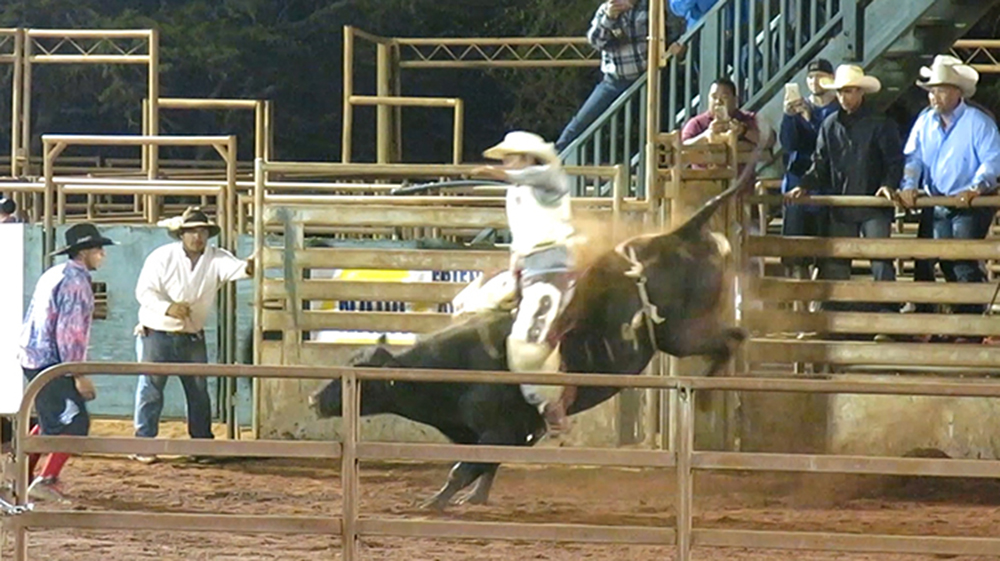
We plan to cross the Ka’iwi Channel back to Oahu this evening, this time we will head for Kaneohe Bay, on the east coast. Our time in Haiwaii is coming to an end and as soon as the trade winds ease we will be heading up to Kauai, the last of the islands that we plan to visit. There are quite a few boats heading to the Pacific Northwest, including many of our friends that we met in French Polynesia. We will gather in Hanalei Bay on the north coast of Kauai to wait for the right weather for the passage.
Still one island to explore, so watch this space!
Suzy
